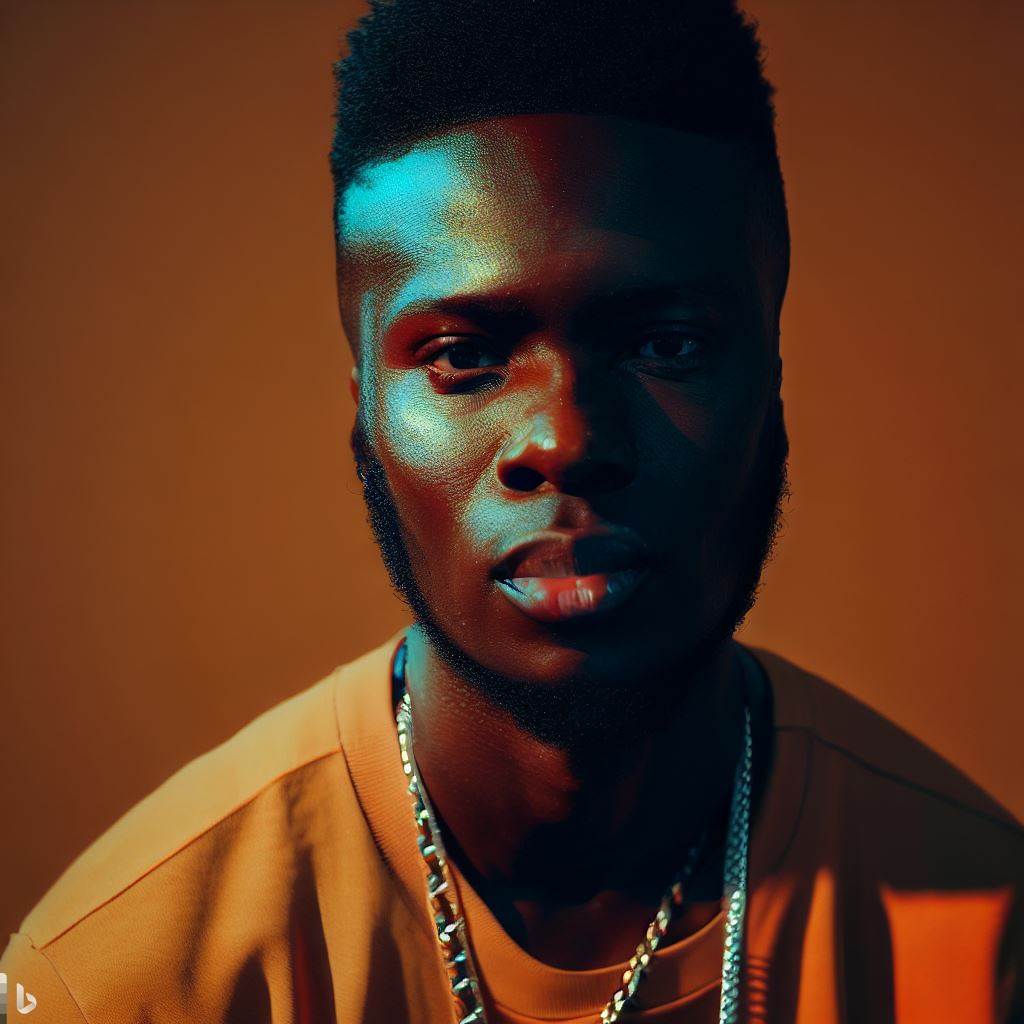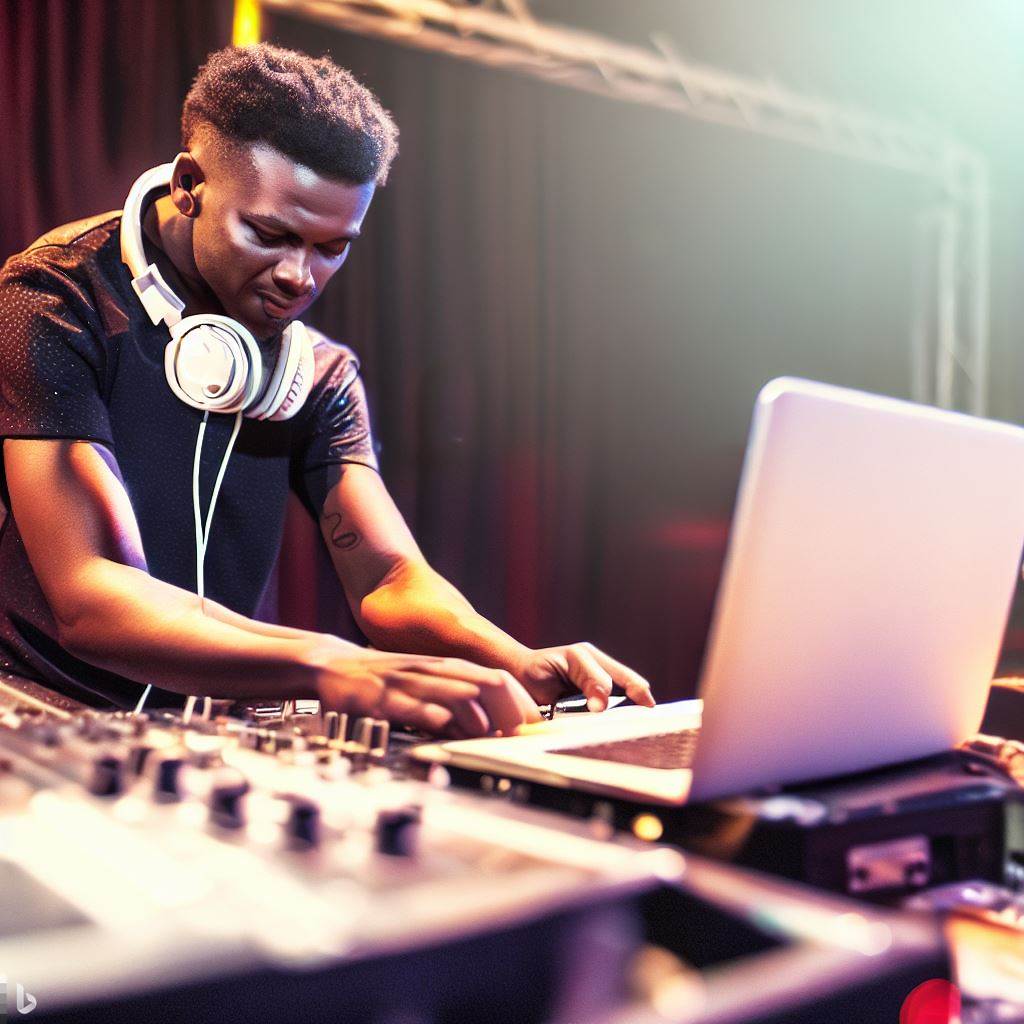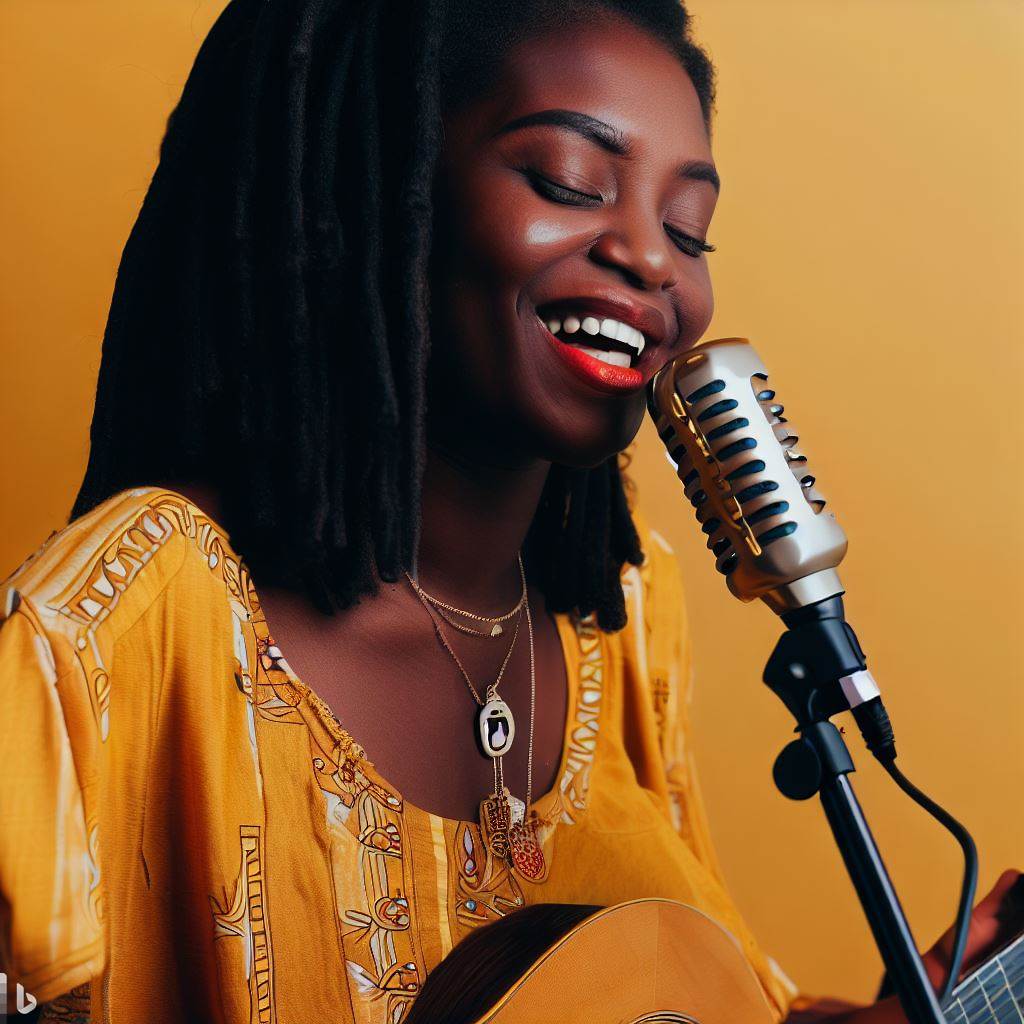Introduction
Nigeria, known as the “Giant of Africa,” is not only rich in cultural diversity, but also in its music industry. One song that exemplifies the country’s musical prowess is “Fall” by Davido.
It has become an anthem that resonates with countless individuals, both within Nigeria and abroad.
The Nigerian music industry has gained global recognition and respect, making it a force to be reckoned with.
From Afrobeat to Afropop, Nigerian songs have crossed borders, influencing not only music but also fashion and dance worldwide.
Artists like Wizkid and Burna Boy have successfully broken barriers and taken the Nigerian sound to a global stage.
Nigerian songwriting is an encapsulation of the country’s cultural heritage and artistic expression. It serves as a medium through which stories, emotions, and experiences are shared.
The creative prowess displayed in Nigerian songwriting is unmatched, as it blends traditional rhythms and melodies with contemporary influences.
Furthermore, Nigerian songwriting explores various themes, such as love, social issues, and cultural pride.
It serves as a powerful tool for cultural preservation, fostering unity among Nigerians, and promoting societal change.
Basically, Nigerian songwriting is an art form that holds immense cultural significance and showcases remarkable creativity.
Through songs like “Fall” and the global influence of the Nigerian music industry, we can witness the power of music in transcending borders and unifying people across the world.
The Origins and Influence of Nigerian Songwriting
Historical overview of Nigerian music and its traditions.
Nigerian music has a rich and diverse history, spanning various ethnic groups and traditions.
Traditional music in Nigeria dates back centuries, with indigenous tribes having their unique styles and instruments.
These traditional songs were an essential part of cultural rituals, ceremonies, and storytelling.
In the 19th century, colonization impacted Nigerian music as European influences began to fuse with traditional styles.
Discuss the role of colonialism in shaping Nigerian music.
Colonialism brought Western musical instruments, notation systems, and styles to Nigeria.
Missionaries played a significant role in introducing Christianity and Western music, which influenced local compositions.
This influence led to the birth of new music genres, such as highlife and juju, blending African rhythms with Western instruments.
Colonialism also brought a societal divide, as music created by and for the elite developed alongside grassroots movements.
Highlight the influence of indigenous languages, folklore, and cultural practices.
Indigenous languages play a crucial role in Nigerian songwriting, with artists using their mother tongues to express emotions and preserve cultural heritage.
Folklore and traditional stories inspire song lyrics, often infusing storytelling elements into Nigerian music.
Cultural practices, such as call-and-response singing and dancing, are incorporated into performances, creating an interactive experience for audiences.
Nigerian songwriters draw inspiration from their surroundings, showcasing the vibrancy and diversity of the country’s cultural tapestry.
Discuss the global impact of Nigerian musicians like Fela Kuti, King Sunny Ade, and Wizkid, increasing recognition for Nigerian songwriting.
Nigerian musicians have achieved global recognition and have become ambassadors for the country’s vibrant music scene.
Fela Kuti, known as the father of Afrobeat, used his music to address social and political issues, resonating with audiences worldwide.
King Sunny Ade popularized juju music, blending traditional Yoruba rhythms with modern instruments, and gained international acclaim.
Wizkid, a contemporary artist, has achieved chart-topping success, collaborating with renowned international musicians and bringing Nigerian music to a global audience.
Their success has not only increased recognition for Nigerian songwriting but has also influenced the global music industry, with artists exploring Afrobeat and integrating Nigerian musical elements into their own work.
Overall, Nigerian songwriting has a deep and diverse cultural heritage, shaped by historical influences and traditional practices.
Through the global success of Nigerian musicians, the world is increasingly appreciating and recognizing the artistry and creativity of Nigerian songwriters.
Read: The Pros and Cons of Being a Songwriter in Nigeria
The Craftsmanship of Nigerian Songwriting
The Importance of Storytelling and Lyrical Depth in Nigerian Songs
Storytelling and lyrical depth are crucial elements in Nigerian songs, as they allow artists to connect with their audience on a deeper emotional level.
Nigerian songs often tell stories that resonate with people’s experiences, dreams, and aspirations. These stories reflect the culture, traditions, and social issues faced by the Nigerian society.
Through powerful storytelling, Nigerian songwriters can convey important messages about love, heartbreak, poverty, politics, and personal growth.
These narratives not only entertain but also educate and inspire listeners, providing them with a means of escape and a source of comfort.
Nigerian songs have the ability to transport listeners to different worlds, to sympathize with characters, and to reflect on their own lives.
The Use of Metaphors, Proverbs, and Wordplay to Convey Messages
Nigerian songwriters are known for their creative use of metaphors, proverbs, and wordplay to convey deeper meanings in their lyrics.
Metaphors allow them to express complex emotions or ideas in a way that is easily relatable and memorable.
By using simple yet powerful imagery, Nigerian songwriters captivate listeners’ imagination and stimulate their emotions.
Proverbs, on the other hand, act as cultural and moral guides in Nigerian songs. They provide wisdom and life lessons that resonate with the audience.
Proverbs are used to address societal issues, promote unity, and inspire positive change. Their inclusion in songs adds depth and resonance to the overall message being conveyed.
Furthermore, wordplay is an important feature of Nigerian songwriting. It adds a playful and clever dimension to the lyrics, allowing songwriters to showcase their wit and intelligence.
Wordplay also appeals to the audience’s sense of humor and keeps them engaged with the song. It is a way of showcasing linguistic prowess and cultural pride.
How Traditional Musical Instruments and Rhythms Inspire Songwriters
Traditional Nigerian musical instruments and rhythms play a significant role in inspiring songwriters.
These instruments have deep cultural and historical roots, and their inclusion in songs adds an authentic and traditional flavor to the music.
The use of instruments such as the talking drum, shekere, agidigbo, and ogene creates a unique soundscape that transports listeners to Nigerian cultural experiences.
Traditional rhythms, such as the Afrobeat, Juju, and Highlife, form the backbone of Nigerian music.
These rhythmic patterns influence songwriters in their composition process, helping them create infectious melodies and compelling harmonies.
Nigerian songwriters draw inspiration from these rhythms to create songs that are both culturally rooted and sonically pleasing.
The Incorporation of Nigerian Languages into Song Lyrics and Its Significance
The incorporation of Nigerian languages into song lyrics is a powerful way to preserve and celebrate the country’s diverse cultures and languages.
Nigeria is home to over 500 different languages, and each language carries its own unique stories, idioms, and expressions.
By using Nigerian languages in their songs, songwriters embrace their cultural heritage and connect with listeners at a local level.
They ensure that these languages continue to be spoken, appreciated, and valued in a modern musical context.
This inclusion also fosters a sense of pride and identity among Nigerians, as they can relate to lyrics that reflect their own linguistic heritage.
Essentially, Nigerian songwriting is an art form that thrives on storytelling, lyrical depth, metaphors, proverbs, wordplay, traditional musical instruments, rhythms, and the incorporation of local languages.
Nigerian songwriters use their craft to entertain, inspire, and educate listeners, while also preserving and showcasing the rich cultural heritage of Nigeria.
Through their songs, they create a platform for social engagement, cultural pride, and personal reflection.
Read: The Cultural Influences on Nigerian Songwriting

Themes and Messages in Nigerian Songs
Diverse Themes in Nigerian Songs
- Love: Nigerian songs often explore various aspects of love, from romantic relationships to family bonds.
- Social issues: Songwriters tackle societal challenges such as poverty, corruption, inequality, and gender issues.
- Politics: Nigerian songwriters express their views on politics, highlighting governance and advocating for change.
- Cultural identity: Songs celebrate Nigeria’s rich cultural heritage, promoting pride and unity among the people.
Addressing Societal Challenges and Promoting Positive Change
Nigerian songwriters play a crucial role in addressing societal challenges and inspiring positive change through their music.
- They shed light on social issues, raise awareness, and encourage listeners to take action.
- By addressing corruption and inequality, songwriters urge people to hold their leaders accountable.
- They advocate for gender equality, challenging traditional norms and promoting women’s rights.
- Through their lyrics, songwriters empower marginalized groups and give them a voice in society.
- Nigerian songs often serve as anthems for social movements, rallying people together for a common cause.
Impact and Influence of Afrobeats on Nigerian Songwriting
Afrobeats, a popular genre influenced by traditional Nigerian music and Western genres, has transformed Nigerian songwriting.
- It has brought international recognition to Nigerian artists, expanding their reach and influence.
- Afrobeats’ infectious rhythms and melodies have captivated global audiences, creating a demand for Nigerian music.
- Lyrically, Afrobeats incorporates themes of love, success, and Nigerian cultural pride.
- Songwriters infuse their songs with Afrobeat elements, creating a unique and identifiable sound.
- Afrobeats has paved the way for Nigerian songwriters to tell their stories on a global stage, fostering cultural exchange.
In essence, Nigerian songs cover a wide range of themes, from love and social issues to politics and cultural identity.
Songwriters in Nigeria use their music as a platform to address societal challenges, promote positive change, and empower marginalized groups.
The rise of Afrobeats has further influenced Nigerian songwriting, propelling it to a global stage and sparking cultural exchange.
Through their powerful and relatable lyrics, Nigerian songwriters continue to captivate audiences and contribute to the vibrant music industry in Nigeria and beyond.
Read: Monetizing Your Music: Songwriters in Nigeria
Collaboration and the Future of Nigerian Songwriting
The Collaborative Nature of Nigerian Songwriting and Its Impact on Creativity
Collaboration is at the heart of Nigerian songwriting, fostering a dynamic and vibrant music scene.
Nigerian artists often come together to create innovative and unique sounds, resulting in the birth of new genres and subgenres.
The collaborative spirit allows for the blending of diverse musical styles and influences, creating a rich tapestry of sound.
This fusion of different voices and perspectives leads to the experimentation and evolution of Nigerian music, pushing boundaries and shaping trends.
With each collaboration, artists bring their distinct talents and experiences, contributing to the collective creativity.
Working together allows for the cross-pollination of ideas, sparking inspiration and fostering artistic growth.
Nigerian songwriters thrive in this collaborative environment, constantly challenging and inspiring each other to create groundbreaking music.
Successful Collaborations within the Nigerian Music Industry
The Nigerian music industry has witnessed numerous successful collaborations that have had a profound impact on the global music landscape.
Artists like Wizkid and Burna Boy have collaborated with international superstars such as Beyoncé and Drake, showcasing Nigerian talent on a global platform.
Additionally, collaborations within the Nigerian music scene itself have resulted in chart-topping hits and groundbreaking albums.
Artists like Tiwa Savage and Davido have joined forces with other Nigerian musicians, creating musical collaborations that resonate with local and international audiences alike.
These collaborations not only elevate the visibility of Nigerian music but also open doors for more opportunities for growth and recognition.
It showcases the versatility and ingenuity of Nigerian songwriters and highlights their ability to adapt to different musical styles and genres.
Opportunities and Challenges Facing Nigerian Songwriters in the Digital Age
The digital age has revolutionized the music industry, presenting both opportunities and challenges for Nigerian songwriters.
On one hand, access to digital platforms and streaming services has made it easier for Nigerian musicians to reach a global audience and gain exposure.
However, the digital landscape also poses challenges. With the rise of streaming, artists must navigate the complexities of copyright infringement and revenue distribution.
Nigerian songwriters face the constant battle of protecting their work while ensuring they receive fair compensation for their contributions.
Furthermore, the oversaturation of the digital space creates a competitive environment, making it crucial for Nigerian songwriters to stand out amidst the noise.
They must continuously innovate and adapt to evolving trends, while still staying true to their unique sound and narrative.
The Future Direction of Nigerian Songwriting and Its Potential Global Dominance
As Nigerian music continues to gain international recognition and influence, the future of Nigerian songwriting looks promising.
With the rise of Afrobeats and its fusion with other genres, Nigerian songwriters are well-positioned to dominate the global music scene.
Nigeria’s rich musical heritage, combined with its vast pool of talented songwriters, provides a strong foundation for continued growth and artistic exploration.
Publish Your Professional Profile, Business or Brand
Showcase your expertise, gain trust, and boost visibility instantly on Professions.ng.
Publish NowThe global success of artists like Burna Boy and Wizkid serves as a testament to the immense potential of Nigerian music.
Furthermore, collaborations with international artists will play a crucial role in expanding Nigeria’s influence on the global stage.
As more Nigerian songwriters collaborate with established artists, the music industry will witness the emergence of new sounds and the fusion of cultures, propelling Nigerian music to new heights.
In short, collaboration is the driving force behind Nigerian songwriting, fueling creativity and innovation within the industry.
Successful collaborations have elevated Nigerian music to a global platform, while the digital age presents opportunities and challenges for songwriters.
The future of Nigerian songwriting is bright, with the potential for global dominance and continuous evolution in the years to come.
Read: Impact of Afrobeat: Nigerian Songwriting Evolved
Gain More Insights: Nigeria’s Editing Industry: A Comprehensive Overview
Conclusion
Nigerian songwriting is not just a form of artistic expression but also plays a significant role in cultural preservation.
Take the time to explore Nigerian music and appreciate the artistry behind the lyrics.
As Nigerian songwriting continues to evolve and make an impact, it reminds us of the power of music to shape and inspire lives.




